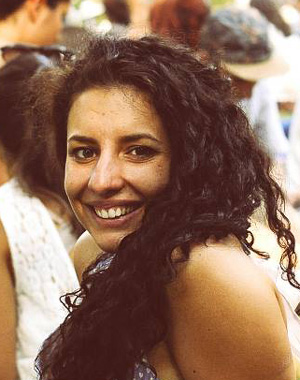When we turn our attention to orphans or disabled children we tend to show false concern for a few minutes but then quickly change the subject. Until something like that happens to us or to the people around us we act as if such problems simply do not exist. The good thing is that this tendency is turning. More and more people have been getting involved in charity campaigns dedicated to different causes. What matters to them most is to be certain that the money they are donating really does go to solve the problem in question.
Operation “Teddy bear” is one of the initiatives that make Christmas possible for thousands of children at institutions in this country, by giving them the presents they want. How did this idea come about? The answer from its organizer Mihaela Stoykova:
 “Operation “Teddy Bear” was launched nine years ago while I was studying abroad. What motivated me was another such campaign called “Shoebox Day” when people put gifts inside shoeboxes that were sent to Africa. I took part in that initiative and made up my mind to do something like that in Bulgaria.”
“Operation “Teddy Bear” was launched nine years ago while I was studying abroad. What motivated me was another such campaign called “Shoebox Day” when people put gifts inside shoeboxes that were sent to Africa. I took part in that initiative and made up my mind to do something like that in Bulgaria.”
Last year more than 7,000 children from 330 institutions in this country received their new gift and some attention from the volunteers for the campaign. Over nine years Mihaela and her team have been to all institutions for orphans and disadvantaged children in Bulgaria. How are they being cared for?
“Unfortunately, the budget sets aside very little for this kind of institutions. Thank God, there are places where more money comes in for disabled children under EU programmes. In Bourgas and the region around, for example, the facilities are very good and the number of staff is sufficient. But when it comes to institutions for children who are not disabled things are very different. They are usually on a very low budget, the staff finds it difficult to cope with year-round care as these institutions are understaffed. It is very difficult to find trained employees.”
The problem of understaffing at such institutions is that people are not motivated to apply for a job at such a home. Salaries are low given the working conditions and the efforts they have to invest so as to solve each individual problem.
Yet this state of affairs has not dissuaded Mihaela or her friends and they have been helping children evolve and one day, change their lives.
“As of this year we are launching a project for which we have been looking for serious funding and partners. It is called “Hidden Talents of Bulgaria” and its aim is to select ten disadvantaged children every year who are provided weekly mentors, private lessons, access to seminars, workshops, contests; we cover the cost of any materials they need to unfold their talents. The idea is to support the children throughout the year and to have teams working with them so they are able to develop in the chosen field. By the time the year is up we should have found some kind of partnership for them – a company or a private person – to support them over the following year.”
Initiatives like this stand every chance of changing the lives of children who have talent but no chance of showing it. Most often the reason is lack of money to follow their dreams. If you would like to help you can do so by logging onto http://plushenomeche.org/bg/. Every penny is an investment in a better future, the kind of future the children deserve.
English version: Milena Daynova
"United We Stand" - Bulgaria's national motto - will be put into action on May 8 by the Bulgarian community in New York City, amid the realities of the times and the distance from home. At 7 pm local time, the Bulgarian Consulate General and the NYC..
"We may be 10 hours behind Bulgaria, but our compatriots on the West Coast of the United States deeply cherish everything that connects them to Bulgaria and their roots," said Maria Samichkova, spokesperson for the Bulgarian Society of Nevada , in an..
"Alphabet of Beer" is the first title I came up with 15 years ago, when I started collecting my beer stories," journalist of the Bulgarian National Radio, connoisseur and exceptional expert on one of the most ancient drinks in the..
In 2025, Bulgaria celebrates 1170 years since the creation of the Glagolitic script – the first Slavic alphabet that preceded the..

+359 2 9336 661
